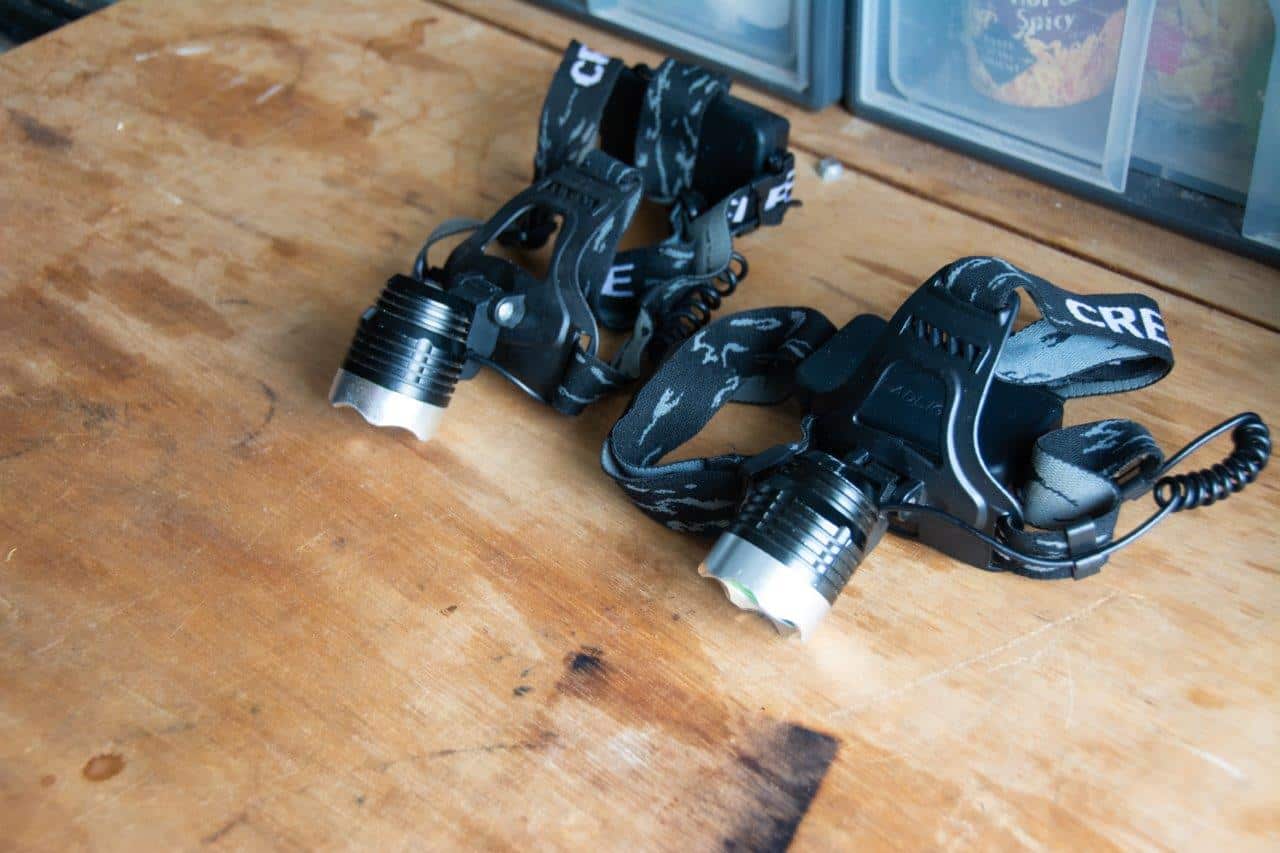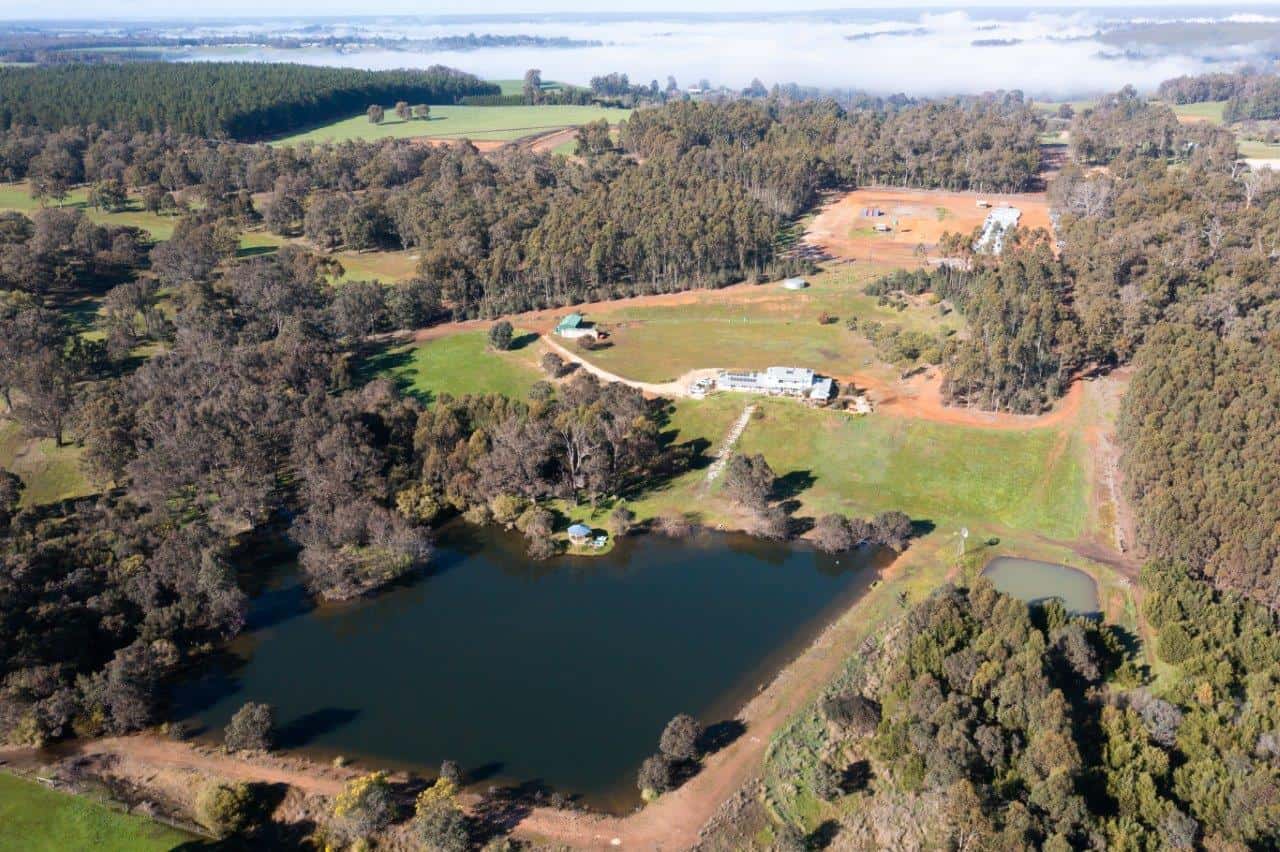How to catch and cook marron, and why its a heap of fun
Despite having grown up in WA, it was only a couple of years ago that we caught our first marron, and that was on a beautiful, big private property in the south west. Since then, we decided to give it a proper crack when marron season came around, and had a heap of fun.
If you’ve never caught marron before, this post will cover what you need to catch them, the rules surrounding what you can use and when you can go, and then how you prepare and cook them.

What are marron?
Marron are fresh water crayfish, which are dark brown/black in colour and found in various fresh water bodies. They are almost a cross between a yabby or koonac, and a western rock lobster.

What do they taste like?
Marron taste similar to western rock lobster, but they are sweeter and in my opinion far nicer. We’ve had our fair share of western rock lobsters, painted crays and even koonacs, and the Marron are by far and away the tastiest.
That said, I have been told if they come from a really muddy environment (like many farm dams) they can taste a bit bland or muddy. The only way you’ll know for sure is to try it yourself!

How can you catch Marron?
There’s a lot of different ways you can catch marron. You can put pots out, scoop them up, use your hands or use a snare. The easiest, and cheapest way is to use a crab scoop, and chicken pellets.
Some people prefer to use marron traps, which you just throw out from the shore with bait inside. Most people use tins of tuna split open, chicken, dog food, mince of oily pellets.
Lastly, you are allowed to use snares, which are similar to a cray loop, but many are home made.


Best Marron Bait
The most common bait for making marron come in seems to be chicken pellets, and you can either throw out handfuls along a big area, or put piles with a couple of handfuls in each. They are attracted to meat as well, which is more common for use in traps.
Where can you catch them?
Most of the fresh water lakes, dams, rivers and creeks have marron in them, in the south west. Providing you are allowed to be there, and its in season, you can go pretty much anywhere.
Popular marron locations include Harvey Dam, Brunswick, Lake Kepwari, Waroona Dam, Wellington Dam, Blackwood River, Murray River, Donnelly River, Warren River, Capel River, Preston River, Moore River, Hutt River and more.
You need good torches
A solid head torch is extremely important when it comes to finding and catching marron. If you have something that isn’t powerful enough you’ll struggle to see them in the water, and it will take your chances of catching something down to almost zero.
You can use hand held torches, but a head torch allows you full, unrestricted movement. Sometimes the Marron can become a bit flighty with torch light, so try to limit how much light you shine around, and only use it as necessary.
We’ve been using these eBay head torches for more than 5 years, and they are truly insane value.

Marron fishing rules
Private properties are exempt
If you are lucky enough to have access to a private property to catch marron, there are no rules. You can catch any size you want, any time of year, and in any way that you choose to. For all public property though (rivers, dams, lakes, creeks etc) you need to abide by the below rules.

You can only go in season
There’s a short season at the start of every year where you are allowed to catch marron. That’s it. Unless you have access to private property, get your marron fishing in early and the rest of the year the stock recovers, ready for another year.
There are strict methods for catching them
We mentioned above that there are 3 ways of catching marron – scoop, nets or snares. However, each item has to comply with the legal marron fishing gear rules. You cannot use traps that are designed for yabbies, or scoop nets that are too long, or you risk a nasty fine from fisheries, and they are out and about in force during Marron season.

Marron size limit
Like almost all seafood, marron have a size limit. They need to be 80mm, except for trophy waters where they need to be 90mm. This is measured from the spike on the top of the head back to where the carapass starts, similar to how you measure crayfish.
Marron licenses
Fishing without a marron license will land you an epic fine, and its not something you want to risk. You can buy the marron license from the transport.wa.gov site, and it lasts for one year.
Marron bag limit
You are only allowed 8 marron per licensed fisher, unless you are in trophy waters, and then its 5 per licensee.

How to cook Marron
Like other seafood, you can prepare and cook marron in a heap of different ways. Some people prefer to boil them, like you would with a cray or crab, and others just get the tails out and cook them on the BBQ.
Our preferred method is to split the tail, cover it in some garlic butter and cook it on the Weber, with the shell down.

Our experiences catching Marron
I mentioned above that the first time we went marron fishing was on private property, at an incredible house with a private lake. We took a crab scoop net, some chicken pellets and went down about an hour before sunset, and scattered a number of handfuls of pellets around the outside of the lake, roughly a metre in.
We came back after dark, without much expectation and were met with a huge number of marron. Catching them is easy; you just scoop them up, like you do with blue swimmer crabs. The second night we caught 6 very quickly, and had a nice feast.

Just a few weeks ago though, we went down to Lake Kepwari to try marron fishing in the wild. We did exactly the same thing, scattering handfuls of chicken pellets around, and then headed off about an hour after dark.
There were quite a few others also doing it, and you can’t really stop people covering the area that you’ve put pellets down, which makes it interesting.

We did better where there was no bait
The ironic thing is that on both nights, we caught more marron in the areas that were further away from easy access, where there was no chicken pellets out. Also, the later you go, the more are out and about. If you head out between 11PM and 1AM you’ll usually do pretty well.
The first night we walked around for an hour or so not too long after dark, and the second night people went out much later and did a lot better.
How many marron did we catch?
We ended up with 17 marron over two nights, with 3 license holders, and probably caught about 50% that were undersize that went back in the drink. Overall, it was an entertaining experience, walking around the beautiful lake in the dark, with thongs or booties on and stopping when one of us saw a marron.

Give it a go
If you’ve not been marron fishing before, you should give it a go. It’s a heap of fun, its easy to do, you don’t need much in the way of gear and they are absolutely delicious.






